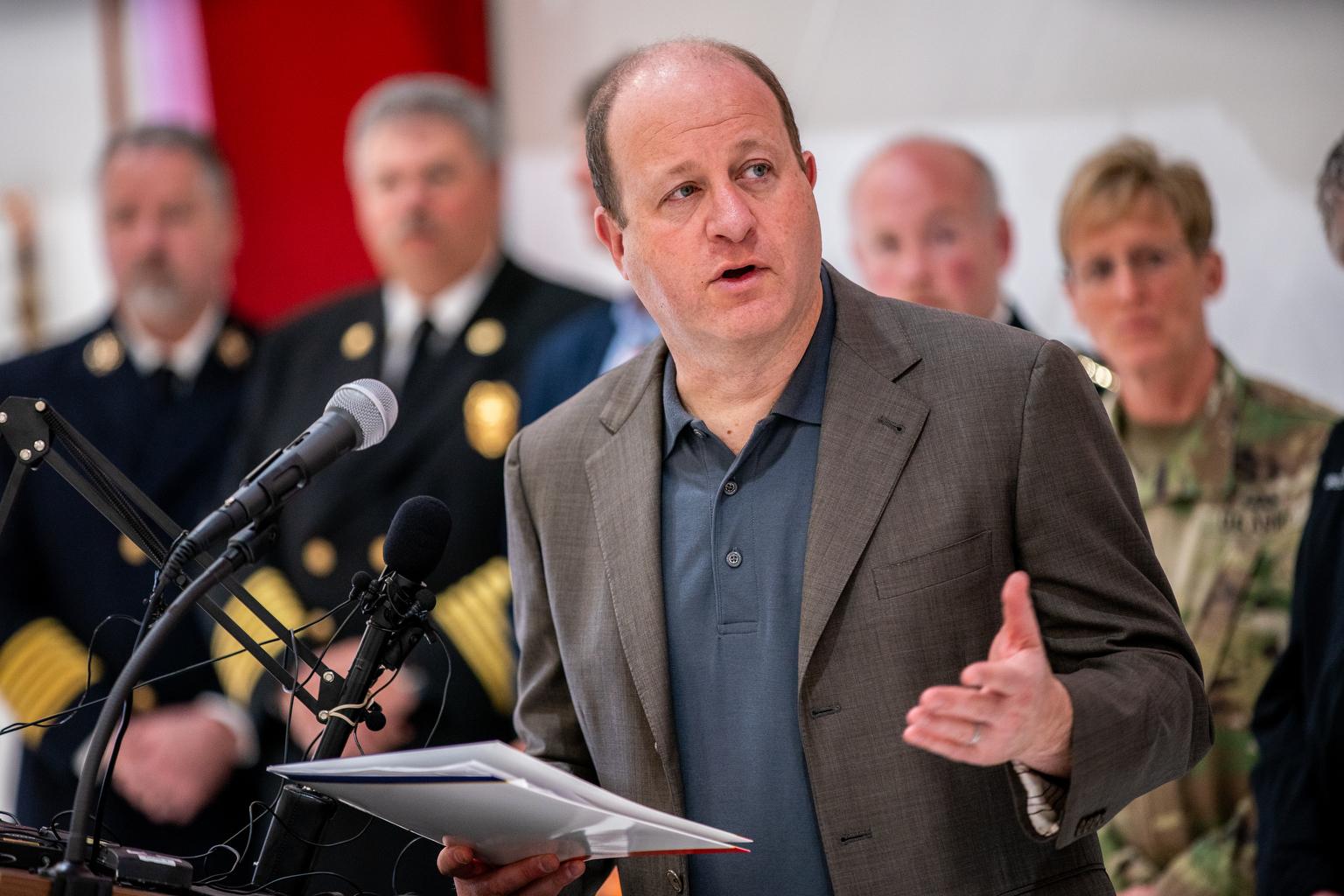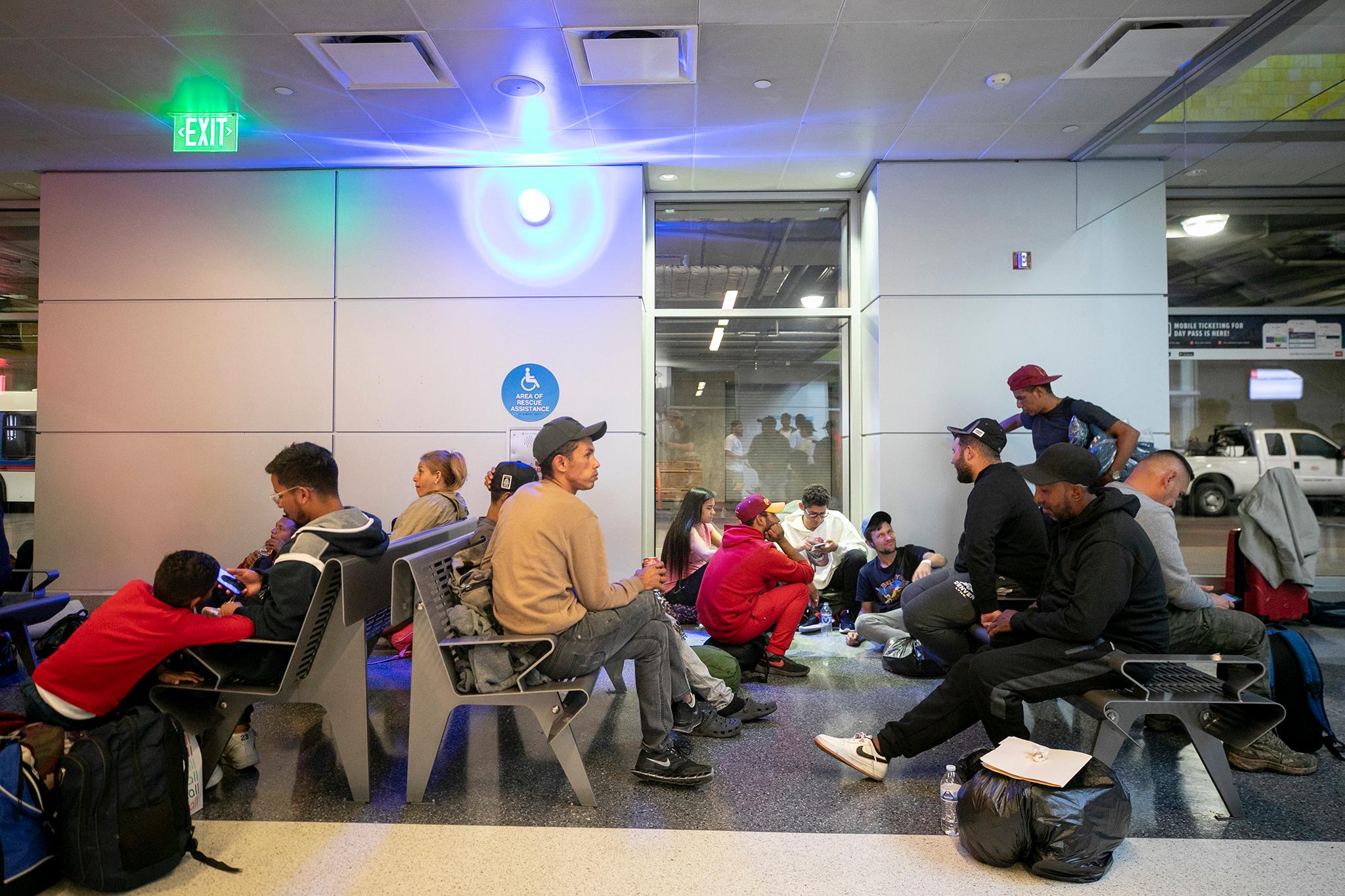
Tens of thousands of people have traveled to Colorado from the U.S. southern border since late 2022, part of the 2.4 million coming to the country. They’re migrating from places with extreme economic hardship and a lack of basic human rights.
The cost and effort of sheltering those new arrivals has generally fallen on cities and nonprofits. Denver has spent $36 million so far on its migrant response. And in places like Aurora and the Roaring Fork Valley, community organizations have stretched their budgets and staffs to help.
While the federal government has provided some funding to offset those expenses, people on the front lines in Colorado say it’s not nearly enough, given that immigration is normally a federal issue.
Now, Democrats in Colorado’s congressional delegation are asking the Biden administration to make more money available to support migrant services.
“In light of the recent influx of migrants across the State, there is a pressing need for expanded support. It is crucial that all affected communities are eligible to apply to every funding tranche should new funds be appropriated,” wrote Sens. Michael Bennet and John Hickenlooper, along with Reps. Jason Crow, Diana DeGette, Joe Neguse, Yadira Caraveo, and Brittany Petterson, in a letter to the FEMA administrator dated Dec. 22.
Their letter does not acknowledge that Congress, with its power of the purse strings, could allocate more money for this purpose but has yet to reach an agreement on whether to do so.
Still, the letter from Democrats adds to a chorus of voices in Colorado asking for more federal help and leadership.
A coalition of nonprofits in Aurora asked for congressional assistance in October. Unlike in Denver, local governments there are not leading the migrant response, so the nonprofits have had to organize themselves and do their own advocacy to be able to expand and serve the thousands of people who have arrived there.
Denver Mayor Mike Johnston went to the White House in November to ask the president to triple the amount he’s asking Congress to allocate for migrant services.
Denver has received some federal help. It’s gotten commitments for $10.6 million, but that’s less than a third of what the city and county have already spent.
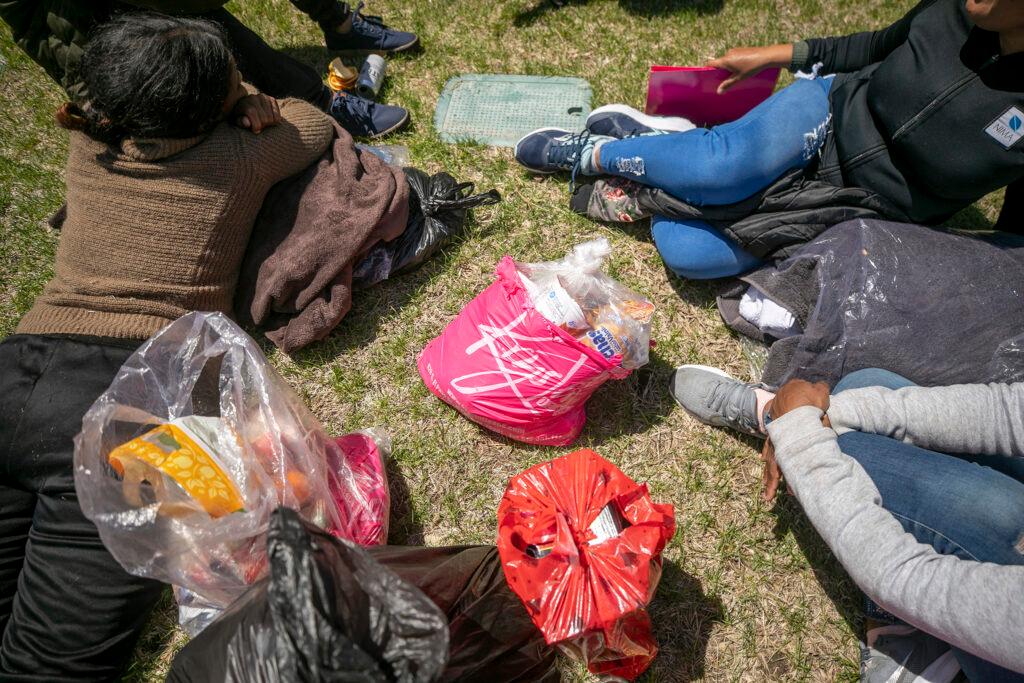
Johnston told Denverite he expects he could spend $160 million in 2024, given there is no end in sight for the waves of people arriving from the border. He warned that, without federal help, the situation could “crush city budgets around the country.”
Groups on the front lines welcome the possibility of funding from whomever in the federal government will provide it.
When people arrive in Aurora, one place they go is the Village Exchange Center, which provides a food bank and hygiene products for thousands of people a week, among other things. Executive Director Amanda Blaurock was happy to see the congressional letter to FEMA.
“How do you deal with this amount of people coming in without an infrastructure and funding to actually support the basic needs of these individuals and without housing to put them in? So it's majorly dire,” Blaurock said.
She recognizes that funding is one piece of a multi-layered problem. On the one hand, the U.S. needs to get a handle on the large numbers of people coming in. But on the other hand, she said organizations like hers are critical.
“People are here. You can't deny that there are human beings at our doorstep,” she said.
Blaurock is trying to make sure the response is coordinated and effective. She has co-led calls for more resources for dozens of Aurora nonprofits that have been helping hundreds of additional families over the past year find food, work, housing, and legal assistance. The groups worry that if people are neglected, it will create a humanitarian crisis and potentially a public safety problem in Colorado.
One key element of Blaurock’s request has been for the Biden administration to expand eligibility to apply for federal funds. Nonprofits in Aurora have been barred from directly receiving any of the $363 million allocated across the country in 2023.
Blaurock is grateful that the congressional letter dated Dec. 22 includes this push to expand eligibility.
“We want to expand that to Aurora, and also just some rural communities in Colorado that, even in the best of circumstances, don't have adequate support to meet needs,” Rep. Crow said.
The congressman added that especially under current conditions, these groups are struggling to keep up with demand.
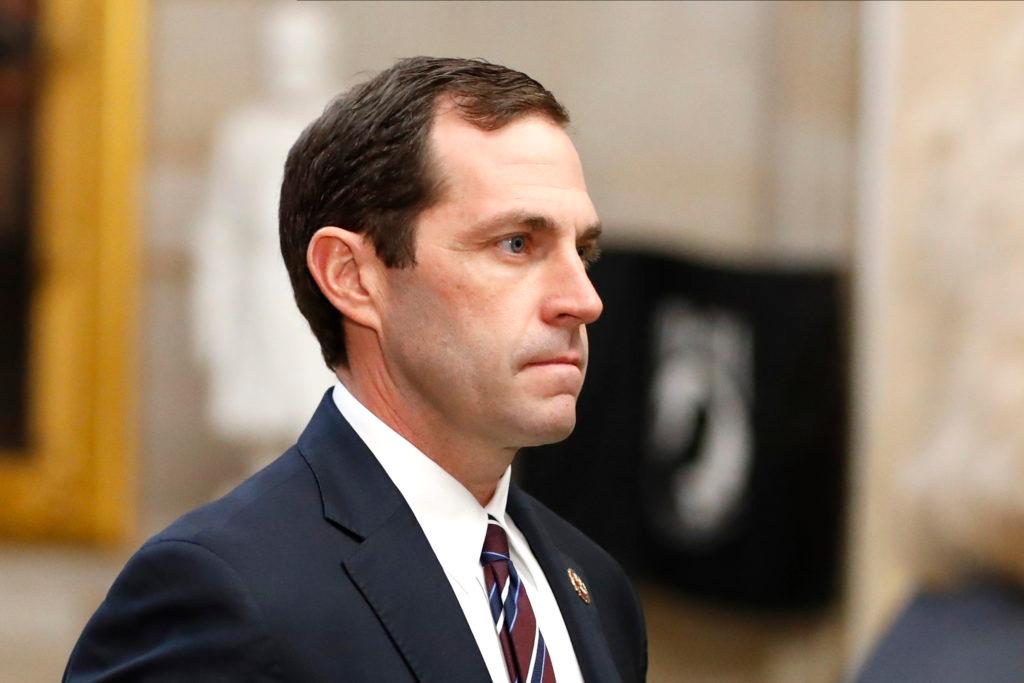
In Denver, Yoli Casas, who leads ViVe Wellness, which has provided sheltering support and other services, said her organization and its partners are ready to meet the need if they can get more federal money.
She said those funds could be put towards emergency sheltering, transitional housing after people have to leave Denver’s official migrant shelters, help finding jobs, and legal services so people can go through court proceedings to try to stay in the U.S.
“I'm very thankful for the letter and for requests for FEMA funds. I really need it, to the point where we needed that yesterday,” Casas said.
But it’s not clear if FEMA can allocate more funds on its own, or whether it needs Congress to act.
Normally, it is Congress’ job to allocate federal money, including to programs like migrant services. The White House has requested some additional money for migrant sheltering and services, but Congress has not funded that proposal. Crow hopes Congress will take it up this month.
In the meantime, Crow said he and Colorado’s senators are in discussions with the Biden administration, “to figure out whether there are mechanisms to shift funding absent congressional action right now.”
That money could come from other accounts in the Department of Homeland Security, which is the larger federal agency that includes FEMA. The agency did not immediately make someone available to respond to questions.
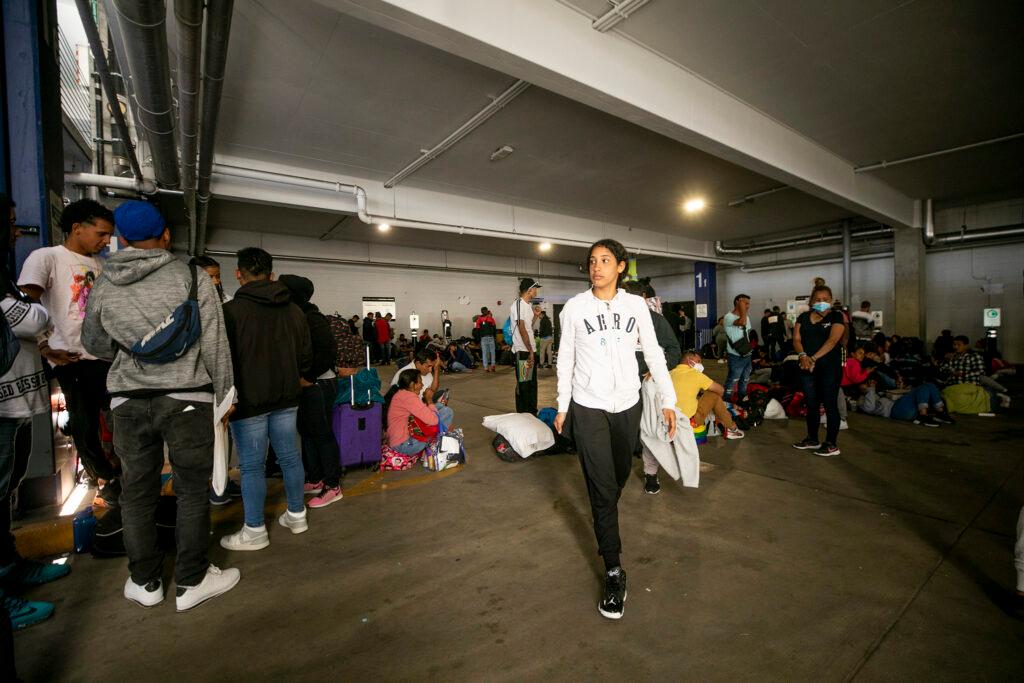
“We're trying to get our arms around the exact money that might be available,” Crow said. The letter from Colorado Democrats does not specify how much money they are requesting, which is in part an acknowledgment that they don’t know how much could be available.
“What we do know is that there are mechanisms for the administration to shift resources. We want them to shift some resources to meet this crisis,” he said.
At the same time, Crow acknowledged that policy and funding around immigration is “constitutionally the purview primarily of Congress.”
“So Congress can't continue to pass the buck,” he said.
But in the absence of congressional agreement, including on how to secure the border to better control how many people are coming into the U.S. and where they’re going, Crow said he doesn’t want to ignore the families who are arriving on Colorado’s streets, particularly in the winter.
“I just do not buy the argument that you don't do anything, that you don't help people who are suffering,” he said.
- Colorado schools dramatically adjusting to teach migrant students – many who’ve never been to school before
- New migrants face fear and loneliness. But on Colorado’s Eastern Plains, Fort Morgan has a storied support network
- Interview: Venezuelans who migrated to Colorado can start to apply for temporary legal status, but many say it’s an inadequate solution

